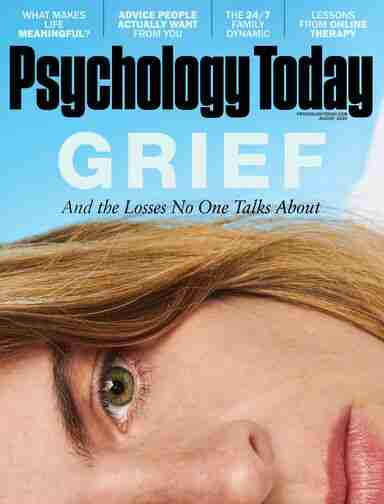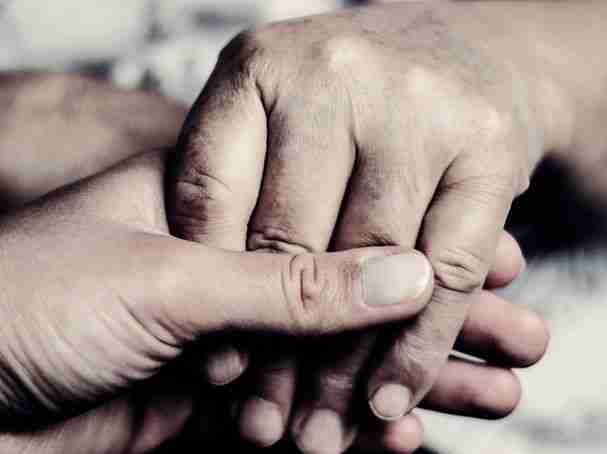Marriage
How COVID-19 Affects Marriage—and How to Adapt
Here are three realistic things you can do to make things right.
Posted Apr 27, 2020

A lot of words have been written about the effects of COVID-19 on health, the elderly, and society.
How about the collateral damage?
Some of which have to do with health issues other than coronavirus that are being neglected or the damaging isolation of our seniors, who deserve to have their last years—and time with loved ones—but are denied this access as a consequence of public health.
Then there's the fallout in relationships, particularly for marriages and children.
Here we will follow up on Part I in this series—Marriage During Corona—with an eye towards putting forward some ideas that can make a difference.
The Starter Marriage:
As we discussed, it is not pathological for marriages to get into trouble. It's probably an organically healthy milestone towards really loving another person—not as an idealized object, but as a day-to-day man or woman who has needs, habits, irritations, judgments… and vulnerabilities.
Now forced to live on top of each other, with financial hardships, worries about health, educating and organizing children—just getting groceries can trigger many to regress.
Without a doubt, the current pressures can bring many issues to the surface, and for some couples, this COVID-19 lockdown will force them to look at their marriage earlier than they may have wanted to. For many, this will be a turning point—surviving together—striving together. For others, the pain of this experience may be too much.
Here are some basic insights that may make a real difference for you.
Adaptability:
It is time to adapt: in a way, to grow up. Start to talk to your partner about his or her needs. Arrange a time to touch base. Understand that things are far from normal. She may feel overwhelmed with educating the children. He may be sitting on fears about finances—or vice versa.
You both need each other now. Old patterns may simply not work. In some ways, we are at war—it is fair to restructure how you both live together and communicate—who knows, it may spill over in a positive way when this is over.
And there is much to adapt to.
One of you may get the virus and need to isolate in the house, yet feel emotionally supported. One of you may lose a friend or family member to the illness, left with grief, as well as the hardship of the moment. And one or both of you may be so overwhelmed or internalize your fears or worries that anxiety, depression, or chemical dependency seeps into your lives.
Be adaptive and see things for what they are. There is help out there, Zoom sessions, hotlines, or simply contacting your doctor—many of whom are conducting business by telemedicine.
We all come from a family of origin. And, whether we like it or not, we never completely escape—even when we want to do so. Look, most people carry loyalty and love in their hearts towards their folks and their families. A smaller minority are interested in putting as much space as possible between their upbringing and themselves. Yet, we never complete escape—but we can learn from our past—and create a better future.
This takes a special kind of intelligence.
You have to be open to the patterns that get triggered by your current marriage, whether it's anger, withdrawal, neediness, shirking of responsibilities, a need to save others, addictions, control—you get it—we bring all this into our starter marriages.
And when we start the project of solving these issues with our partner (and they work on their family of origin issues with you), the next generation becomes healing rather than a repetition.
That is worth the effort.
And how is this all connected to the current crisis? These patterns come to the fore when we regress. So, you may be dealing with your core marital issues now that the pressure is on. I invite you to step back and see your role in the current moment. Even avoidance—and acting like everything is OK, only for things to spill out after this is all over—is usually a pattern that we have learned in our childhood.
Your partner is probably only a part of what is going on. Take this time to see how you react, and in what way it mirrors something maladaptive in your family of origin. And get the help that you need—now, and later when things settle down.
It is the wise—and brave—thing to do.
Awareness:
Then, there's awareness. What are you going through? Are you slipping into bad habits: alcohol, anger, avoidance, resentment, or something else? See what you can do to work on yourself, and be empathic towards yourself—about your own burdens. This is not easy. And it is not going away anytime soon. Find ways to nurture yourself, like meditation apps, time with friends, healthy walks, good eating, committing to a sleep-wake cycle—that can all reverse the regressive pull of the moment.
Finding time to exercise, sing, pick up your guitar, connect, enjoy, or read; whatever fills you up. We may be going through a tough time, but you still deserve ways to feel better. Put them in your day. Don't just wait to feel good.
Positive action often generates positive moods.
You may also want to take a breath and be there for your partner when he or she seems down or tired—or exasperated with the kids, or worried about what is going on—or simply not being him or herself.
Awareness gets us out of ourselves—and gives us a chance to see things as they are.
Sometimes it leads us to set better limits.
He may not treat you badly—she may not demean you—even if you made a mistake or fell short. This is a time to pull together.
Limits include everything from deferring a conversation because feelings are too hot.
"Let's talk about this after dinner; we are too upset now."
Or limits can be simply,
"I need you to help with the dishes/kids/your mom."
Or limits can be more severe, as in confronting your partner about his or her overindulgence in weed, alcohol, or some other addiction.
And if you feel unsafe, limits may include calling in reinforcements, such as family or, when serious, law enforcement.
The limit setting comes from a sense of what is right, what is healthy, and what is, at times, unsafe. Awareness can get you to that place of knowing what to do. A good therapist can be priceless right now, so do not feel shy about getting help, especially if you believe that more limits are required. There is no growth for anyone if boundaries aren't respected—or if folks feel unsafe in their own homes.
Then there is the magic of awareness, called empathy.
Simply work to get yourself open to living in your partner's shoes.
What is he or she feeling—thinking? Is he overwhelmed or simply pulling inside? Does she need a shoulder to lean on? Can you let go for a moment and provide him with a softness that may make his day easier?
And can you both find a way to speak to each other with compassion—and patience?
The starter marriage can morph into a wonderful home. It takes adaptability, intelligence, and awareness, but it does happen—every day. There are no easy fixes. In fact, many marriages will be strengthened by this experience.
Often, we bond with those who share hardship with us.
And some will give up. The cracks in the "starter" marriage simply fail to endure the test of isolation, prolonged anxiety, or simply looking at each other and realizing it doesn't work. If it is to be a breakup, please do it intelligently as well.
Takeaway:
My best advice is to understand that this is a pressured and regressed experience. To use it as an opportunity to be there for each other and to learn better about who your partner really is at a deeper level.
Look inside yourself. See what is coming up—and confront it constructively. The problem may not be the relationship, so be honest about it. Otherwise, you are at risk to bring it all forward into the next partner you connect with.
Love, after all, is an action verb.
It is a moving target, but the grandest one that human beings encounter. This too shall pass—will you and your partner learn some valuable lessons? Adaptability, intelligence, and awareness are three simple words. What lies behind them can make all the difference.
I wish you all good things.














